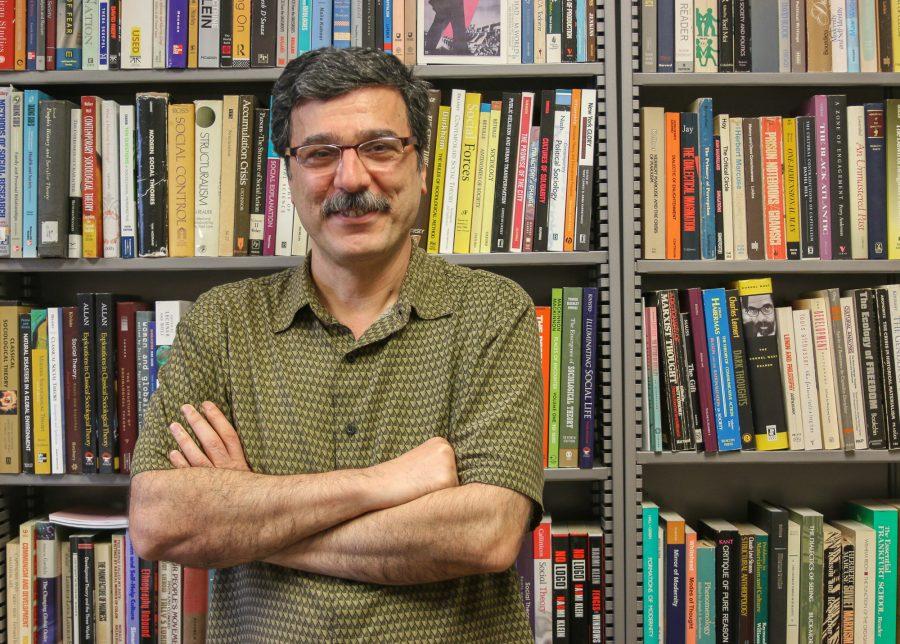Professor publishes book about imprisonment during the Iranian Revolution
Universiy of Illinois Professor Behrooz Ghamari-Tabrizi published his memoir, “Remembering Akbar: Inside the Iranian Revolution”, in September based on his experience during Iran’s Revolution.
Sep 28, 2016
In the early 1980s, Behrooz Ghamari-Tabrizi was a political prisoner in Tehran. Thirty years later, the activist is releasing a semi-autobiographical novel based on his time in prison and as a leftist student activist in the 1970s during the Iranian Revolution.
Published in September 2016, “Remembering Akbar: Inside the Iranian Revolution” tells the story of a group of prisoners who share a cell in Evin prison. Unlike other prison literature, Ghamari’s book does not follow a tragic narrative. Instead, he highlights the nuances that people don’t always see looking from the outside.
He said he hopes readers will see that in the face of death, there is not an absence of life.
“There is a lot of hilarity in the middle of this horror; there is a lot of friendship and bonding that happens in the midst of all this torture,” Ghamari said.
He didn’t initially intend to share his stories with the public. Instead, they began as a form of meditation.
Get The Daily Illini in your inbox!
“They were something I wrote pretty much for myself and for people I knew. Every year, I wrote short stories on New Year’s Eve — that was my ritual,” Ghamari said.
He was skeptical of sharing his stories with the public because he feared his narratives would become a political tool in the ongoing conflict between the U.S. and Iran.
“I never wanted to see this book become a player in that politics because I don’t want this book to be used by any policy-makers to say ‘now see, this is why we are doing x, y and z,” Ghamari said.
The book does not recount historical events exactly as they happened. Instead, Ghamari seeks to show the events as they were understood and experienced by him and other prisoners.
“It’s about things that actually happened, but from a very particular standpoint — from a place that was experienced by the main character, Akbar,” Ghamari said. “Akbar tries to get into the world of the people around him to open a conduit — to open a door — to their world as well.”
Akbar’s story gives readers a unique look into a crucial moment in world history and life as a political prisoner.
“There is so much intense moments of relationships that often is lost when we are thinking about these moments as moments of tragedy,” Ghamari said. “It’s about suffering. It’s about love. It’s about hilarity. It’s about music. It’s about poetry.”






